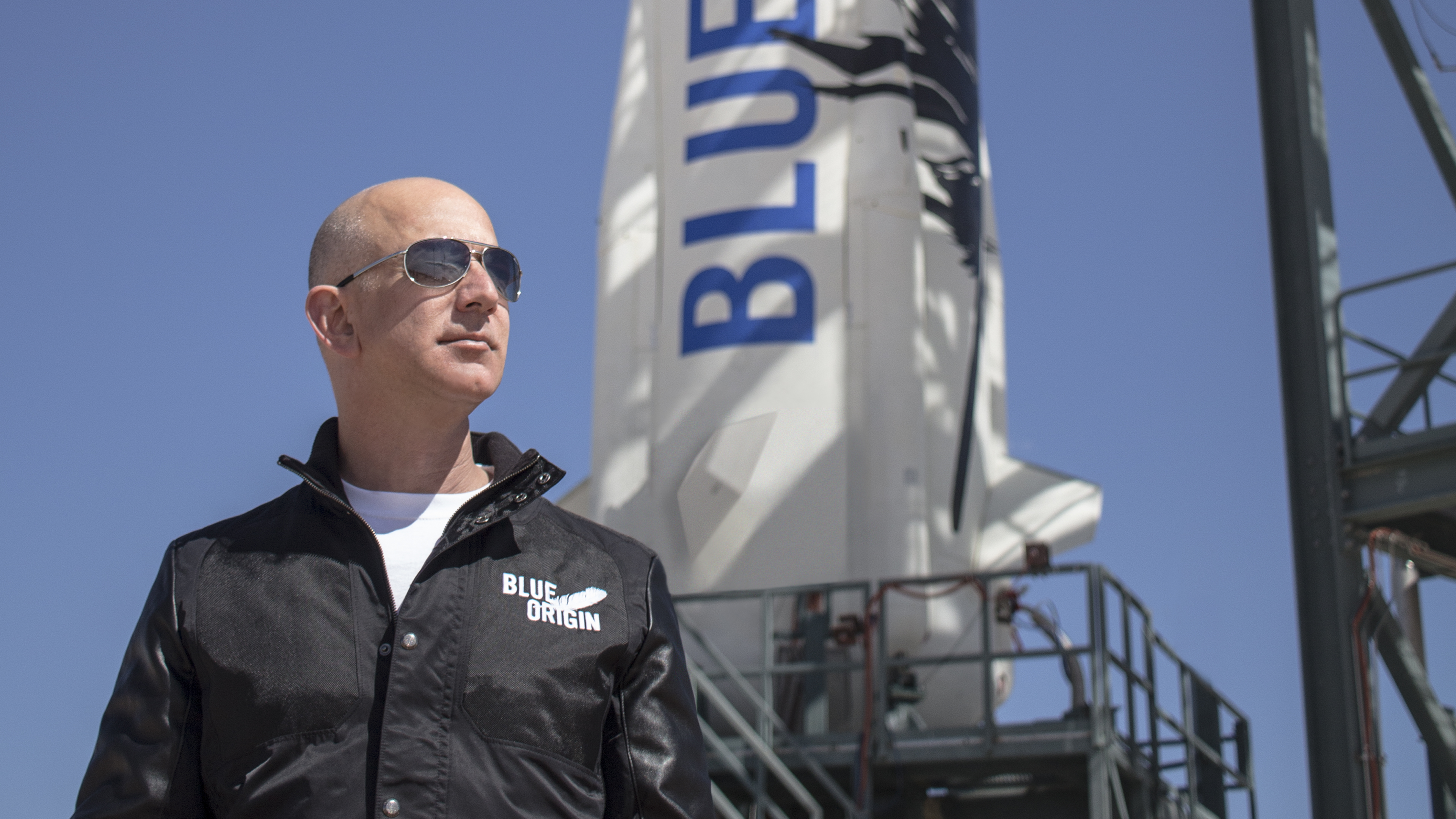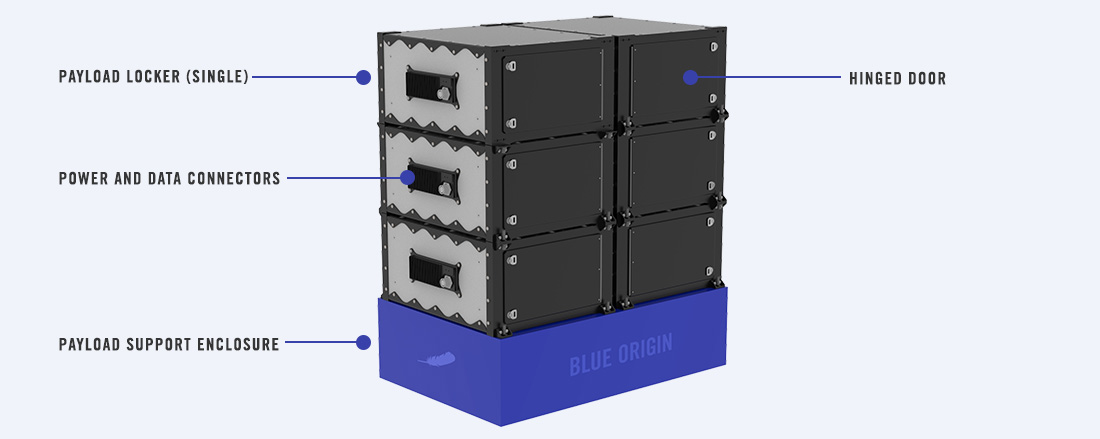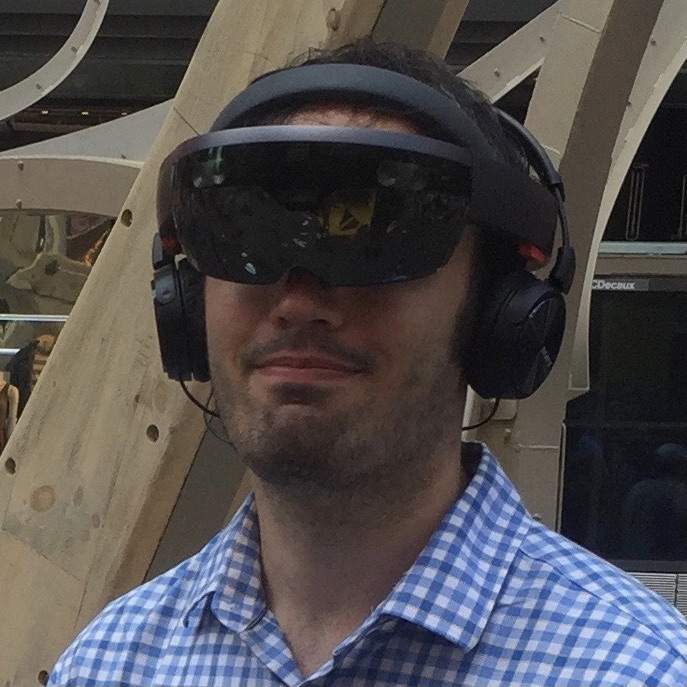You can watch Jeff Bezos' Blue Origin reusable rocket launch this Sunday
Your move, Elon Musk

Sign up for breaking news, reviews, opinion, top tech deals, and more.
You are now subscribed
Your newsletter sign-up was successful
For all of SpaceX’s recent livestreamed launches of its reusable Falcon Heavy rockets, broadband satellites and NASA’s planet-hunting satellite TESS, you’d be forgiven in assuming it's the only major commercial space developer worth mentioning.
But Amazon CEO Jeff Bezos and his spaceflight company Blue Origin want to remind us that the space race to send tourists into the stratosphere is still going strong.
This Sunday, April 29 at 9:30 am EST (6:30 am PST / 2:30 pm BST / 11:30 pm AEST), Blue Origin will launch its reusable New Shepard rocket into space for the eighth time, and the first time this year.
Launch preparations are underway for New Shepard’s 8th test flight, as we continue our progress toward human spaceflight. Currently targeting Sunday 4/29 with launch window opening up at 830am CDT. Livestream info to come. @BlueOrigin #GradatimFerociter pic.twitter.com/zAYpAGWB8CApril 27, 2018
New Shepard is a vertical takeoff, vertical landing rocket (VTVL) that, like SpaceX’s reusable rockets, launches a payload into space from suborbit before landing via booster engines, all in just around 10 minutes.
The payload thus far has been a crew capsule for human passengers and light payloads.
Blue Origin's last launch in December 2017 featured its new Crew Capsule 2.0, upgraded with wider windows to give passengers a better view of the action.
The test passenger, a dummy nicknamed “Mannequin Skywalker”, was filmed during the last trip as the New Shepard traveled about 322,000 feet (98 kilometers) into the air.
Sign up for breaking news, reviews, opinion, top tech deals, and more.
While this trip also won’t have a human crew in the Capsule, Blue Origin’s director of safety and mission assurance, former NASA astronaut Jeff Ashby, told Space News last December that we could see such a crew later this year.
“We’re about roughly a year out from human flights, depending on how the test program goes,” Ashby said. “We have a bunch more tests to do, and we’re going to fly some human test flights before we put paying people in the rocket.”

However, this flight will carry payload lockers with “microgravity experiments” that will be triggered once these leave Earth’s atmosphere. And once humans are allowed on the rocket, they’ll be able to perform “tended experiments” in sub-orbit.
Two-day free shipping to the moon
Once New Shepard’s manned commercial flights are running smoothly, Blue Origin will turn its focus to New Glenn, its massive reusable rocket capable of hitting low-Earth orbit with a 100,000 lb (45,000 kg) payload. The company is planning its first test launch for the rocket in 2020.
Beyond this, Bezos wants to use his company’s rockets towards the same goal as Elon Musk: to colonize space.
“We should build permanent settlements on the moon's poles where we can get water and solar power,” Bezos said at the annual Apollo 11 Gala at Kennedy Space Center last year.
“We know things about the moon we didn’t know back in the 1960s and 1970s, and with reusable rockets we can do it affordably,” he added. “We can get that done today.”
For now, Bezos is likely just hoping this rocket launch livestream will keep people’s focus away from Amazon Prime’s recent price hike to $119. Bezos’ Twitter announcement led many unhappy customers to leap to the attack.
Increasing our membership to $119?! 😡🤬April 27, 2018
- Why Jeff Bezos is building a giant 'millennial' clock inside a mountain

Michael Hicks began his freelance writing career with TechRadar in 2016, covering emerging tech like VR and self-driving cars. Nowadays, he works as a staff editor for Android Central, but still writes occasional TR reviews, how-tos and explainers on phones, tablets, smart home devices, and other tech.